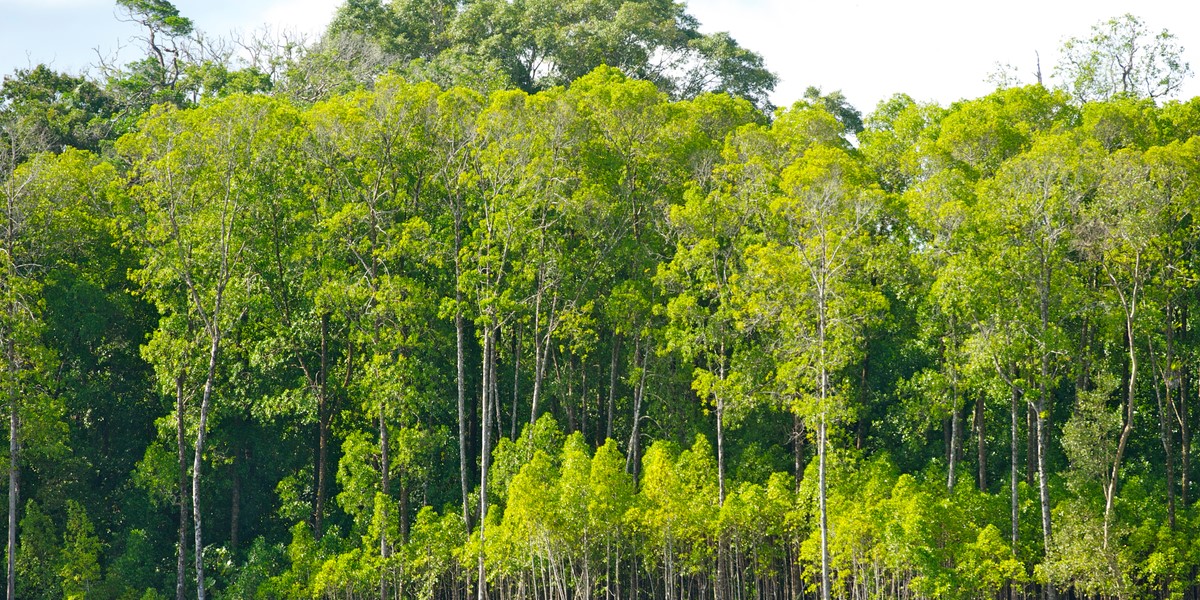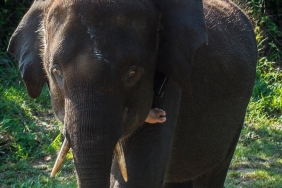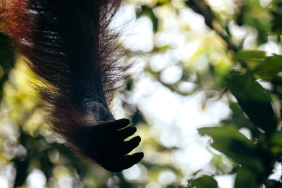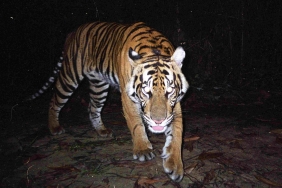CORRUPTION AND MONEY LAUNDERING CAUSE DEGRADATION OF INDONESIA'S NATURAL FORESTS
Jakarta - Three non-governmental organizations consisting of WWF-Indonesia, Indonesia Working Group on Forest Finance and Transparency International Indonesia stated that they are ready to monitor the eradication of corruption and money laundering in the forestry sector. This was stated during the Public Discussion "Patterns of Corruption and Money Laundering in Forestry Crime" held by a consortium of the three institutions today (Wednesday, 31/10) at the Salihara Porch, South Jakarta.
According to the Corruption Eradication Commission, corruption and money laundering in the forestry sector have cost the state 100 billion US dollars. While in August 2011, the Ministry of Forestry issued a report that corruption and money laundering practices in the forestry sector in Kalimantan had cost the state more than 300 trillion rupiah. These two reports show the weak integrity and accountability of government institutions in the forestry sector.
Secretary General of Transparency International Indonesia, Teten Masduki, said, "The high loss of forest cover in Indonesia is a reflection of the poor level of forest management and tends to be corrupt. The results of research conducted by TI-Indonesia show that corruption occurs in every line of forestry management, from existing regulations, forest management, to law enforcement."
The pattern of decentralization power relations has implications for the shifting power relations between the central and regional levels and between institutions in the regions. These changes open up opportunities for rampant 'money politics'by regional heads to obtain and maintain support from the legislature, the utilization of various sources of financing by legislative members as deposits for political parties and - most commonly, the desire for self-enrichment. Opportunities for corruption in the natural resources sector are further opened up by the differences / inconsistencies in regulations issued by the central and local governments, collusion between the legislature and the executive and the lack of public participation and supervision.
Within 25 years, forest cover on the island of Sumatra has halved from 25.3 million hectares in 1985 to only 12.5 million hectares in 2009. This decline in forest cover has been characterized by illegal practices ranging from licensing policies to bribery.
WWF-Indonesia Forestry Program Director, Anwar Purwoto, stated that systematic patterns of forest destruction through corruption and money laundering are pushing biodiversity in Indonesia's tropical forests towards extinction. "The narrowing of forests as animal habitats actually increases the area of conflict between humans and animals and the loss of ecosystem balance which often causes disasters. Ultimately causing even greater losses," Anwar added.
The three institutions that are members of the SIAP II (Strengthening Integrity and Accountability Program II) consortium invite all parties from both central and regional governments, entrepreneurs, and the community to maintain the remaining forest areas by encouraging better forest management.
Coordinator of Indonesia Working Group on Forest Finance, Willem Pattinasarany, said, "The commitment of the Government of Indonesia in UNFCCC 15 in Copenhagen in 2009 to reduce emissions by 26% requires the government to comply with this commitment. The trick is to apply the precautionary principle in supporting investment in the natural resource management sector, especially on forest areas."
The SIAP II Consortium fully supports and assists financial and banking institutions in designing various guidelines such as Know Your Customer (KYC) and CDD (Customer Due Dilligence) in the Forestry sector. "With these KYC and CDD guidelines, banks benefit from having clean customers, while entrepreneurs benefit from being trusted by banking institutions to be supported by business financing," Willem continued.
Contact:
Dyah Ekarini, SIAP II Communications and Media Coordinator, drini@hutankita.org, +62 813 85455229
Note to the Editor:
- Strengthening Integrity and Accountability Program II or SIAP II for short is a 2-year program supported by USAID that aims to strengthen integrity and accountability in sustainable forest management that is free from corrupt practices. The program is run by a consortium consisting of WWF-Indonesia, Indonesia Working Group on Forest Finance (IWGFF) and Transparency International Indonesia (TII)
- In the last 60 years, forest cover in Indonesia has decreased from 162 million ha to only 88.17 million ha in 2009. Or equivalent to about 46.3 percent of Indonesia's total land area. (FWI, book Portrait of Indonesia's Forest Condition 2000-2009)
.





